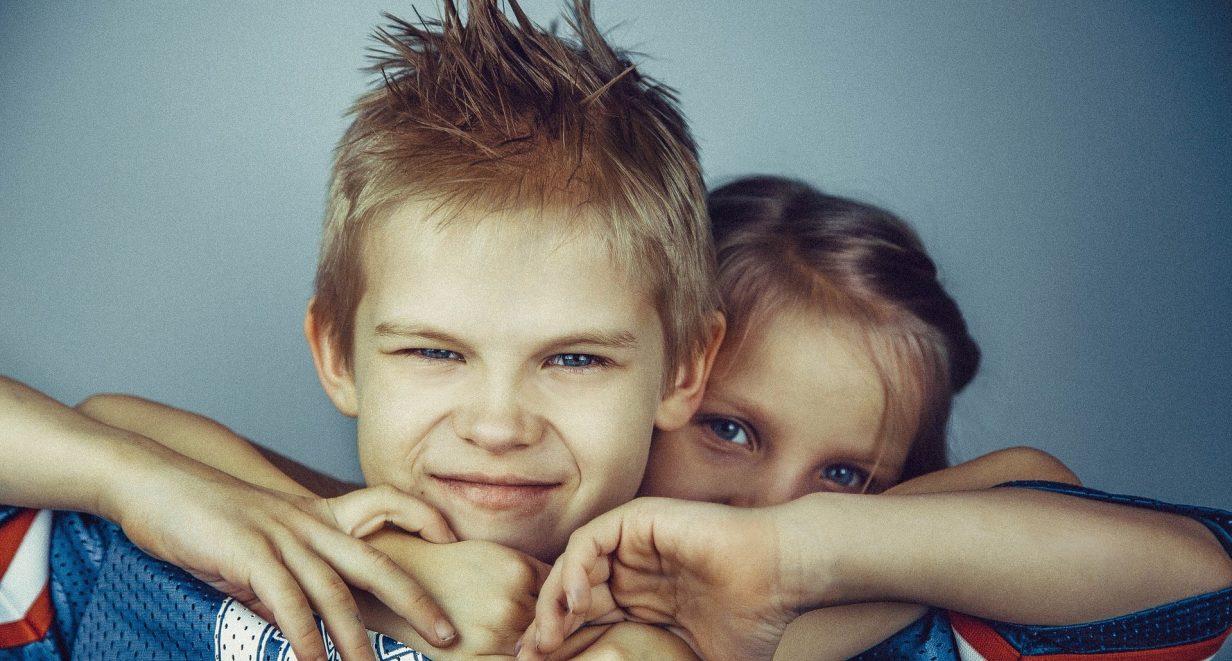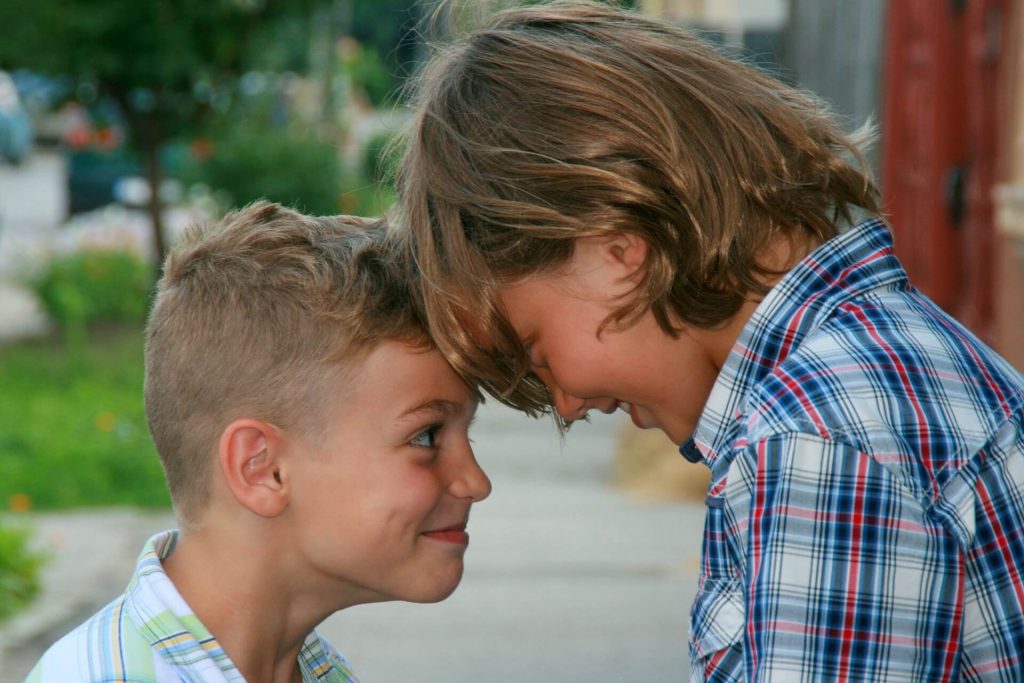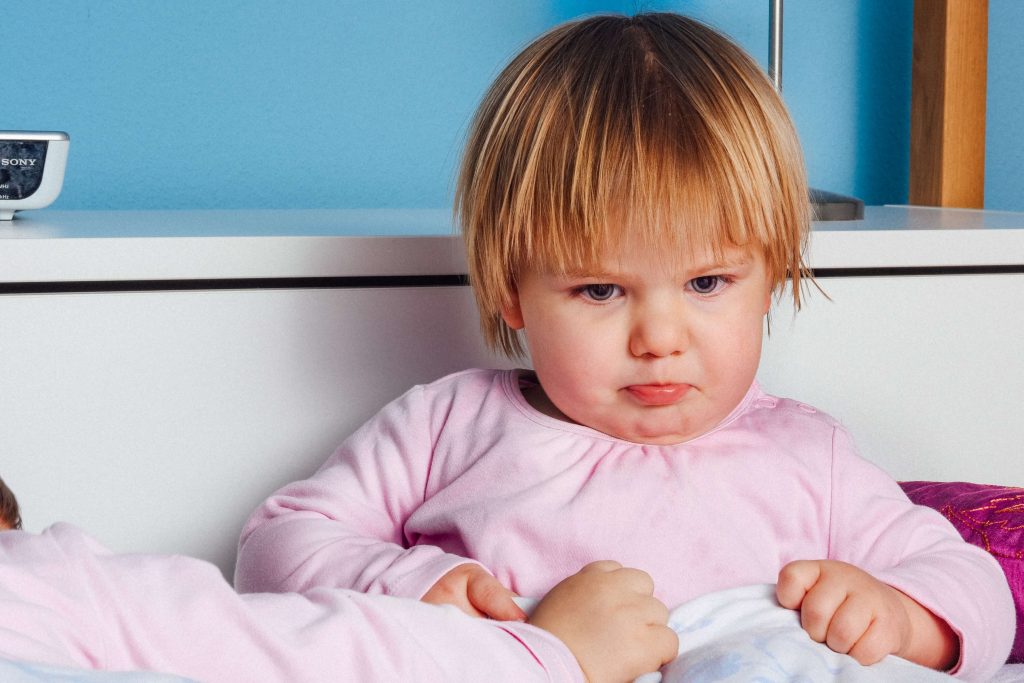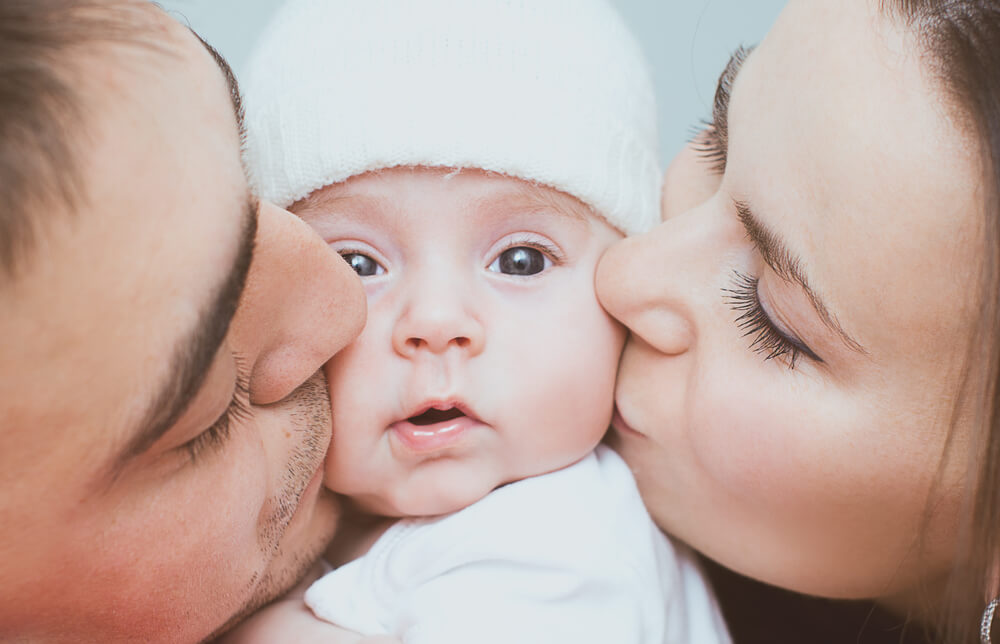How to Deal with a Child Jealous of Their Parents’ Affection

Having a child jealous of their parents’ affection can cause issues between you and your partner.
As children develop, it’s normal for them to become jealous of their parents’ relationship. Jealousy can also appear in a child’s other relationships with adults, siblings, and even other children.
So how can parents better understand children’s foundations of jealousy? How can they best deal with a jealous child?
This article contains everything parents need to know and more about how to deal with a child jealous of a parent’s affection and provides ways and tips toward a better understanding of jealousy in children.
Contents:
- The Nature of Jealousy in Children
- Types of Jealousy
- Coping With Jealousy
- Why is My Daughter Jealous of Me When Bonding with Her Father?
- Why Is My Son Jealous When I Spend Time with His Father?
- Why Do Babies Get Jealous When Parents Kiss?
- FAQs
The Nature of Jealousy in Children

Prostock-studio/Shutterstock.com
What is jealousy? It’s a natural emotion felt by everyone at one point or another and is defined by Webster’s Dictionary as when someone is “hostile toward a rival or one believed to enjoy an advantage.”
Psychologist Deborah Serani reassures, “Jealous feelings are normal developmental and emotional experiences in childhood.”
When it comes to children, the psychology of jealousy is generally triggered in situations where they feel they lack love and attention from a person important to them.
What Causes a Child To Be Jealous? Is Parental Affection Alone the Reason?
It’s not just about the fact that there’s a child jealous of their parent’s affection.
Some of the important people in the life of a child are parents, in particular, the mother. And when the attention of a parent isn’t directed entirely at them but at something or someone else, jealousy rears its ugly head.
However, jealousy is a common emotion that children feel toward a younger brother or sister, another adult, or even a stranger.
Jealousy is one of the most complex emotions and unpleasant experiences a child can go through. It’s triggered by the fear of losing a meaningful adult relationship and followed by anxiety over the perception that they’re no longer important and loved. This results in anger towards the person who has taken this love away.
There are many common reasons for jealousy in children:
1. The child’s egocentrism (“I am the center of the Universe, and everything revolves around me”).
The child considers themselves as the most significant member of the family and of society and expects all the love and attention from everyone around to be directed solely towards them.
2. A reaction to injustice
The child gets jealous when parents start devoting more time to their younger brother or sister, or to each other, forgetting about the needs of their son or daughter.
3. Difficulty expressing love
The emotional development of the child is at an embryonic stage; therefore, they cannot always adequately express warm feelings towards their parents, especially if they have not been taught to do so. In this situation, a kid uses jealousy as a way of displaying their love.
4. Anxiety
Increased sensitivity of the child and the feeling of anxiety for minor reasons also contribute to jealousy in children.
5. The feeling of helplessness
A child understands that they cannot exist independently without mom and dad at this early stage of life. In order to protect their parents from everyone around them, they use a protective mechanism, which is jealousy.
Based on these five factors, it’s apparent that jealousy in children isn’t simply caused by parental affection or lack of a parent’s affection alone. Other emotions like anxiety or helplessness, in combination with normal developmental egocentricity, all play a role in what causes a child to be jealous.
How Do I Know if My Child Is Jealous?

Prostock-studio/Shutterstock.com
Here are three examples of how parents can tell their child is jealous:
- When the second child becomes part of the family, parents might notice their firstborn begins to demonstrate regression of their abilities. The kid suddenly “forgets” how to dress, wash their face, or go to the bathroom on their own. Some children even ask to start wearing diapers again. The child’s logic is simple: they understand that being a newborn is beneficial—it allows them to be universally loved and cared for and frees them from any responsibility or duties.
- The child can’t sleep, they suffer from a loss of appetite, and pre-existing medical conditions are worsened. Particularly sensitive children may start experiencing neurological problems like tics or stuttering. Jealousy in this situation is manifested in the form of a psychosomatic reaction. For example, the child will show hostility towards a new member of the family. Watch out for this behavior as if the sibling is a newborn, then the situation can become dangerous. The child might also become anti-social, depressed, and uncommunicative with the birth of a sibling. They could also become naughty, mischievous, or start making scenes.
- Some children may become jealous of parental behaviors like affection. This can come out in anger expressions, such as yelling or throwing tantrums. For example, while a little girl’s father is reading her a bedtime story and starts getting distracted and laughing with the mother, the daughter may show anger and say something like, “Stop talking to Mommy! Read to me now!” If her father doesn’t immediately respond, she may grab the book and throw it on the floor, and pout. This is jealousy over losing attention and can turn into anger and frustration, leading to an emotional outburst.
What Are the Dangers of Jealousy in Children?
At first glance, the expressions of jealousy do not seem that bad. It’s easy for parents to assume that these feelings will pass and that their children will become friends and take care of each other.
Parents: It’s crucial to remember that jealousy is a negative emotion that stems from anger and fear.
If the child doesn’t learn how to deal with negative feelings like jealousy, this feeling will follow them into adulthood and restrict them from building a happy life and healthy emotional development. Leaving feelings of jealousy unchecked creates “fertile ground” for mental disorders.
Jealousy in childhood not only causes the child to suffer but also damages their healthy relationships with parents, other family members, and even friendships.
Make sure that your children are all right when they are left without your attention. Install the Findmykids app right now!
Types of Jealousy

Prostock-studio/Shutterstock.com
When it comes to the understanding of jealousy in kids, parents can identify several different types, including:
To One of the Parents
Most often, kids become jealous of their father over his relationship with their mother. It’s also possible for a child, most often a daughter, to become jealous of her other parent (her mother) over her bond with her father.
Mothers provide a lot of support to children and become a very important part of their world. When a mother gives attention to another person, even a father figure, the child perceives that attention as a threat to their safety. The child becomes jealous. They will make a scene, want to spend all their time with their mother, or behave well only in her presence.
Towards Brothers and Sisters
When a child is born, mom and dad fulfill all the desires of the newborn, and the baby feels loved.
Then, a second child becomes part of the family. Everything previously given to the firstborn is given to the younger sibling.
The firstborn experiences fear of losing the love and attention of their parents. The child becomes concerned about future changes and feels negativity towards the culprit of all these changes.
These feelings are most often expressed through aggressive actions, mood swings, and tantrums.
Towards Other Adults and Children
Changes in family dynamics, like a divorce, can lead children to become jealous of step-family members.
It’s natural for a child to deny and reject these new family members. It’s very likely that they’re already stressed because their parents have divorced, and it’s challenging to handle new family dynamics.
Preschoolers and primary school students can be hostile, but with a good, friendly attitude, they quickly get used to a new parent. Teenagers often ignore their stepmother or stepfather and refuse to obey them, stating as part of their protest: “You are not my mother/father!”
If step brothers and sisters appear in the family, the child must also build new relationships with them, which can vary from a mutual understanding to hatred and open rivalry.
Children may also become jealous of their “overly successful” neighbors’ children or classmates whom their parents constantly set out as an example.
Coping With Jealousy

Prostock-studio/Shutterstock.com
When coming across jealousy in children, it is important for parents to learn how to respond to it adequately.
If you notice that a child is jealous of you, their dad, their sibling, or another person, do not neglect this! Don’t expect the problem to fix itself. Jealousy is a child’s cry for help, love, and attention.
The Correct Reaction of Parents
Talk with the child and explain that you understand why they feel jealous. Tell the child that you love them very much, that you are proud of them, and that you want everyone in your family to live together and maintain a good relationship. Showing positive behaviors towards your child is much more effective than negative behaviors when you find that your child shows signs of jealousy.
Carefully monitor the well-being of the child: as previously mentioned, jealousy can quickly turn dangerous.
How Could It Be Prevented?
Don’t forget the most important rule: it is better to prevent jealousy in children than to deal with its consequences.
Preparing a child for the birth of a brother or sister:
- Tell the child that a newborn will become part of the family (as soon as the child begins to notice changes in the appearance of their mother).
- Let the child know how wonderful it is to have a brother or a sister, what a reliable friend will be, and how fun it will be to play and spend time together.
- Give the child an opportunity to start communicating with their brother or sister while they are still in the womb. The kid can talk with their sibling-to-be, tell them tales, and feel them through the mother’s belly.
- Imagine with your child how the baby will be once they are born: the color of their eyes and hair, what they will like, and what they will dislike.
- Choose the toys, the bed, the stroller, and other accessories for the newborn with the firstborn, and ask for their opinion.
- Prepare the child for the upcoming changes in your lives: “We will put the crib here for the baby, and you will now have your own room. Imagine how grown-up you are already!”, “Now you are sliding down a hill by yourself, but soon you will be doing so with your younger brother. You will be together with him almost all the time while playing and walking. Imagine how close of a friend he will become!”
- Explain that at first, the brother will be very little and that he will neither walk nor talk, so the child will have to wait until his sibling grows up a little. In the meantime, he will need to be protected and taken care of.
- After giving birth to a second child, do not turn the firstborn into a nanny. The oldest kid also has the right to their childhood.
- Explain to the child how to handle the newborn (not to make noise while they are sleeping, to pick them up carefully, etc.).
- Let the child offer their help—in finding the pacifier that fell on the floor, bringing a bottle, or rocking their stroller. If the kid wants to hold the baby, do not refuse that to them. If you are afraid that the kid could drop the baby, sit next to them and ensure everything is fine.
- Do not leave the older and younger children on their own! This is a matter of safety. Even if it seems that the older one loves the baby, takes care of them, and does not demonstrate any signs of aggression, you cannot imagine how inventive children can be. And, perhaps, while you are washing the dishes, the eldest daughter will want to give the baby candy or an orange, make them ride a bicycle, or paint their nails with markers.
- Emphasize the emotional closeness of children more frequently, with stories of how the older child will become the best brother or sister for the baby and will teach the younger to ride the bicycle, ice skate, and play football. Let your child feel like an important person in the life of a newborn.
- Do not give your older child to your grandmother or aunt while you are busy taking care of the newborn. The firstborn will feel useless and isolated from the family and will think that the parents want to “get rid” of them.

Prostock-studio/Shutterstock.com
If a new adult becomes part of the family:
- It is advisable to introduce the child to the stepfather or stepmother before starting to live together. A new person should gradually enter the life of the child and win their trust. You will need to give them time to get to know each other.
- Explain to your child why someone else has become part of the family; tell them that this person will love both the child and the parent and will take care of them.
- Organize trips, for example, to an amusement park, together with your new partner. But don’t force the situation. If a child today only wants to go with their mother, give them an opportunity to do so.
- It would be better if the stepfather or stepmother adopted the lifestyle of your family in order to foster friendly relations.
- Discuss in advance how the child will communicate with their father or mother in the event of a divorce. Schedule appointments for meetings between the child and each of the parents.
- Many divorced parents begin to turn their children against the new partner of their mother/father. This should not happen under any circumstances! The child is already under stress due to the separation of their parents. The aggravation of the conflict between parents with the use of the child’s feelings will lead to serious consequences on the mental well-being of the child.
Tips of a Psychologist
- If there are several children in your family, give each of them some one-on-one time, when the child can be alone with their mother, get attention and care from her. For example, when the father goes for a walk with the newborn, the mother plays with dolls and draws with her older daughter.
- Do not give the younger child toys and other possessions of the older one without their permission, even if they have lost interest in them.
- Do not compare your children, be happy with the successes of both of them!
- Split the love and care equally between each child. All of them need parental affection, be it a newborn, a preschooler, or a teenager.
- During quarrels between children, do not take the side of the youngest child only because they are smaller. If you punish the children for fighting, do it in the same way.
- In the event of extreme jealousy or a demonstration of aggression (in any form: children starting to fight, pushing each other, calling each other names, etc), put an end to it immediately. Explain that they are part of one family, which means they are friends for life, and their parents love them equally.
- Spend more time with the entire family: walk, travel, and play together. This will strengthen not only your relationship with your children but also will bring siblings closer and will make them more responsive.
Jealousy is a completely natural phenomenon for a child. In the opinion of children’s psychiatrist and psychoanalyst Donald Woods Winnicott, “Jealousy arises out of the fact that children love. If they have no capacity to love, then they don’t show jealousy.”
The main point that parents should remember is that it’s impossible for children to avoid feeling jealous. But minimizing its manifestations and giving an opportunity to every child to feel important and needed, is fully achievable by parents.
Why is My Daughter Jealous of Me When Bonding with Her Father?

Prostock-studio/Shutterstock
It is very common for daughters to experience parental jealousy when their mothers show affection to their fathers. It’s actually a normal developmental phase rooted in attachment, identity formation, and competition for parental affection.
One of the most famous theories as to why this happens is Sigmund Freud’s Oedipal Complex. He suggested that young children between 3 and 6 years old go through a phase where they become unconsciously possessive of the parent of the opposite sex and view the same-sex parent as a “rival” for attention.
Another theory is that children form such strong attachments to their parents, especially to the parent they perceive as the most nurturing. If a daughter is highly attached to her father, she may feel “replaced” or “left out” when he is affectionate towards her mother.
Examples of jealousy in a daughter who is possessive of her father include:
- Interrupting Affection — A daughter may physically place herself between her parents when they are hugging or kissing
- Imitating Behavior — She may try to act like her mother (wearing her shoes, putting on makeup, or mimicking romantic gestures) for her father’s attention
- Expressing Frustration — A child may say things like, “Why are you hugging Mommy?” or “I want a hug, too!”
- Acting Out — She may display mild aggression toward her mother, such as pouting, pushing, or pulling her away from the father
- Regression — Using a “baby voice” or seeking to be carried like a toddler to gain her father’s attention
If you notice your daughter is jealous and becomes possessive of her father, there are a few ways you can handle the situation.
The first step is to normalize and validate her feelings. Acknowledge your daughter’s emotions without reinforcing her jealousy. Say something like, “You love Daddy a lot, don’t you? It’s okay to want attention from him. Mommy loves him, too.” Encourage healthy attachment to both you and the father. This helps her feel secure and safe, which has been shown to reduce jealousy in children.
It’s also helpful to have a conversation with your daughter about the emotion of love. Explain that love is not a competition and that there is enough to go around for everyone in the family. Continue showing affection so that she learns that love between parents is normal and not a threat. Make affectionate moments inclusive, such as group hugs, to reinforce unity, especially during quality family time.
Why Is My Son Jealous When I Spend Time with His Father?
Boys can also experience similar feelings of jealousy when their mothers show affection to their fathers. This often arises from the strong attachment young children have to their primary caregiver. If a son sees his father as a competitor for his mother’s attention, he may react by trying to insert himself into interactions, becoming clingy, or expressing frustration when his parents are affectionate.
While the underlying reasons for jealousy are similar in both boys and girls, the way they express it can vary. Sons may try to engage their mothers in playful physical activities, seek exclusive attention, or show signs of regression, such as using a baby voice or demanding to be carried. They may also mimic their fathers’ actions to assert their presence or compete for dominance in interactions.
The recommendations for handling this situation are largely the same. Acknowledge your son’s emotions while reinforcing the idea that love in a family is not a competition. Encourage a strong bond with both parents by ensuring he gets quality time with each of you. Continue to model healthy affection between parents so he understands that this dynamic is natural and not a threat. Inclusive family moments, such as group activities or shared rituals, can help him feel secure and reassured. With patience and consistency, he will gradually learn that love within the family is abundant and meant to be shared.
Why Do Babies Get Jealous When Parents Kiss?

Tania Kolinko/Shutterstock
Jealousy in babies is a fascinating mix of attachment theory, cognitive development, and social-emotional learning. Babies around 6 months old may exhibit early signs of distress, possessiveness, and attention-seeking behavior when they see their parents showing affection.
Psychologist John Bowlby credits jealousy in infants to the attachment theory. Babies form strong emotional bonds with primary caregivers, usually parents. When parents direct attention toward each other instead of the baby, the baby may feel temporarily displaced.
Psychologist Jean Piaget proposes that lack of object permanence is to blame for infant jealousy. Up until around 8–12 months, babies have not fully developed object permanence (the understanding that things exist even when out of sight). When babies see parents engaging in affectionate behavior that doesn’t involve them, they may fear being left out or forgotten.
While lacking the ability to express emotions in words, babies often show jealousy in the following ways:
- Crying or Whining — A sudden outburst when parents kiss or hug
- Reaching Out — Trying to physically separate parents by grabbing or pushing
- Frowning or Pouting — A baby may make a displeased face when they see affection that doesn’t involve them
- Throwing Objects — Older infants may throw a toy or shake their head in frustration
Parents can address their baby’s jealous emotional response by reassuring them by including the baby in affectionate behavior.
After kissing each other, make sure to give the baby a kiss, too. It’s also important to normalize parental affection. Babies need to see and experience healthy relationships to learn emotional regulation, so continue showing affection so the baby sees it’s a normal part of relationships.
Spending one-on-one bonding time with the baby to reinforce a sense of security can also help them feel confident that parental love is not a limited resource.
FAQs

Prostock-studio/Shutterstock.com
Do you still have questions about jealousy in kids or a child being jealous of a parent’s affection? Check out the answers to our most commonly asked questions for more information.
Why do kids get jealous when parents hug?
When parents hug or show affection to one another, a child can show jealous behavior by becoming upset. The reasons why kids get jealous when parents hug include,
- Having more attachment to one parent (a preferred parent)
- Feeling neglected by the parent’s relationship and needing more attention
- Unable to express emotions or feelings related to physical affection
Why do kids get jealous of their parents’ affection?
Kids get jealous of their parents’ affection because they crave attention and may feel temporarily excluded when their parents focus on each other instead of them. This jealousy often stems from attachment needs, fear of losing love, or a desire to be the center of attention.
When a child is overly attached to one parent?
One way for toddlers to show independence is to favor one parent over the other. It’s a toddler’s way of asserting independence, to show that they can make choices. This is similar to a three-year-old child wanting to watch a specific YouTube video before bed every night or drinking from one particular cup.
The good news is that this is a phase that the child will grow out of eventually.
Why is my daughter jealous of me and her dad all of a sudden?
The daughters’ jealousy likely stems from developmental changes, attachment shifts, or a need for reassurance. As kids grow, they become more aware of relationships and may feel left out or insecure when they see their parents showing affection.
Why is my 5-year-old so jealous?
Your 5-year-old is likely experiencing normal developmental jealousy as they navigate emotions, attachment, and social awareness. At this age, children crave attention and may feel insecure or competitive if they perceive love as a limited resource. Jealousy can also be triggered by changes in routine, a new sibling, friendships, or seeing parents focus on each other.
How do you deal with a jealous son?
Dealing with a jealous son is similar to dealing with a child jealous of a parent’s affection. Here are some tips to help:
- Talk to the child about the source of their jealousy
- Don’t compare the child to others
- Focus on the child’s strengths
- Focus on experiences and gratitude
- Plan fun activities to do together
It’s crucial not to give in to a jealous son’s demands. For example, buying him whatever he wants to make him feel better is only a band-aid solution.
How do you deal with a jealous older child?
Jealousy amongst siblings is common, especially with an older child. In most scenarios, an older child becomes jealous because of the arrival of a baby. Parents need to divide their attention between their children, which is something very different for the older child who used to receive all the attention.
Understand that this is normal and help your jealous older child deal with their feelings by treating your kids fairly, listening to their needs, and creating a cooperative environment.
How do I stop my child from being jealous?
To stop your child from being jealous, reassure them that love is abundant by giving them plenty of individual attention while also modeling healthy affection between parents.
Проверьте электронный ящик



















